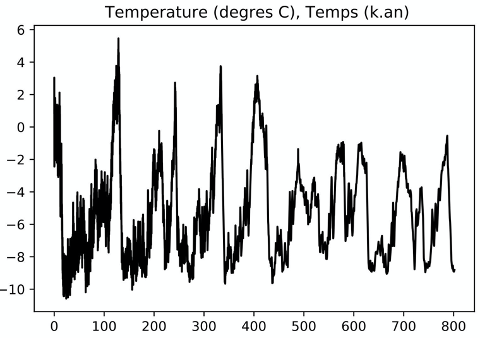Data Science
Any set of data is a signal. In the sciences of the universe, data are sometimes provided in large amounts and processing them is a challenge in itself. But even in simple cases, it is useful to know the fundamentals: the notion of frequency, decomposition on a base of sinusoids, a Fourier spectrum etc.

Contents:
- Fourier II (18h)
- Dirac distribution (2h)
- Fourier transform, convolution, TF of usual functions, diff. eq. (6h)
- Signal processing (10h)
- Convolution and linear physics
- Green's functions
- Truncation
- Discretization
- DFT and FFT
- Apodisation, detrending
- Programming of these concepts (4 lab sessions)
- AI / Data science (6h)
- PCA (2h)
- Introduction to classification (k-means method) (2h)
- Introduction to neural networks (2h)

